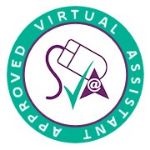From my experience, there are two types of planners out there…
There’s the super organised people who have their next year planned out in November.
Then there are the people who have so much going on come the end of the year that they can’t even begin to think about next week, let alone next year. (I’d planned to get this blog out in December… enough said!)
So, if, like me, you’d rather just get the year out of the way and spend your time tying up all of those loose ends so when January comes, you’ve got the time and headspace to reflect and plan for the year ahead, that’s okay.
There isn’t a right or a wrong way to approach planning for your business in 2023. What’s important is to make sure your planning process is one that works for you.
To help you find your planning groove – whenever it works best for you – below are my five top tips to get you started…
1. Take some time to reflect on what went well last year and what didn’t.
To get the most out of your new plan, it’s important to be strategic and reflect on what’s worked well and what hasn’t.
What activities were a resounding success and should absolutely be carried forwards into this year’s plan?
And is there anything that, if you’re totally honest with yourself, would be best binned? Look at the data or feedback you’ve collected over the last 12 months to help inform your decisions.
2. Forget what everyone else is doing, build a plan around your goals.
What are your aims for 2023?
What would make your year a resounding success? It’s very easy to be swept up in this tidal wave of what everyone else is doing. But the problem with following the current is that you don’t always know what that business is aiming for.
You want to make sure that everything you do in your business this year is helping you to achieve your goals. Make sure everything aligns with your vision and values – not someone else’s!
And take a holistic approach. Think about every aspect of your life – not just your business. What are your goals around health and wellbeing, your home life, your social life, your financial goals? Take time to think about what’s important and what will serve you well.
3. Break it down.
A full 365-day plan can feel daunting and overwhelming, so break it down into chunks that you know you can work with.
This might be 60 days, 90 days, or even seven days – whatever works for you. This is also a great way to make sure that your goals are achievable in the time-frame you’ve mapped out.
4. Schedule in time to review.
Projects often have this sneaky habit of going off track. There are always those ‘just quickly do it now’ jobs and enquiries that push the schedule back by more than you expect. And sometimes things pop up that you need to outsource or require you to learn new skills that can quickly derail even the best made plan.
Regularly scheduling in time to review your progress, and adjust your plan accordingly, is key to making sure you’re successful in achieving your goals.
5. Don’t let perfectionism get in the way.
Websites, email sequences, brochures, planning… there’s always something more you can do or add or say.
As much as we want everything we put out there to be perfect, your thoughts and ideas will develop over time. This is why scheduling in time to review your ideas and plans is pivotal – it gives you an opportunity to put your work out there so that what you have is better than you had before. Imperfect action is far better than perfect inaction.
You can make tweaks and changes after things go live. This way, perfection becomes an ongoing journey rather than something that is holding you back from getting started.
To recap, the most important aspect of any plan is making sure that it aligns with your vision and goals.
And if you’re shooting for the stars in 2023 and a couple more hours in the day is what you need to achieve these goals, get in touch. We’re here to help.










